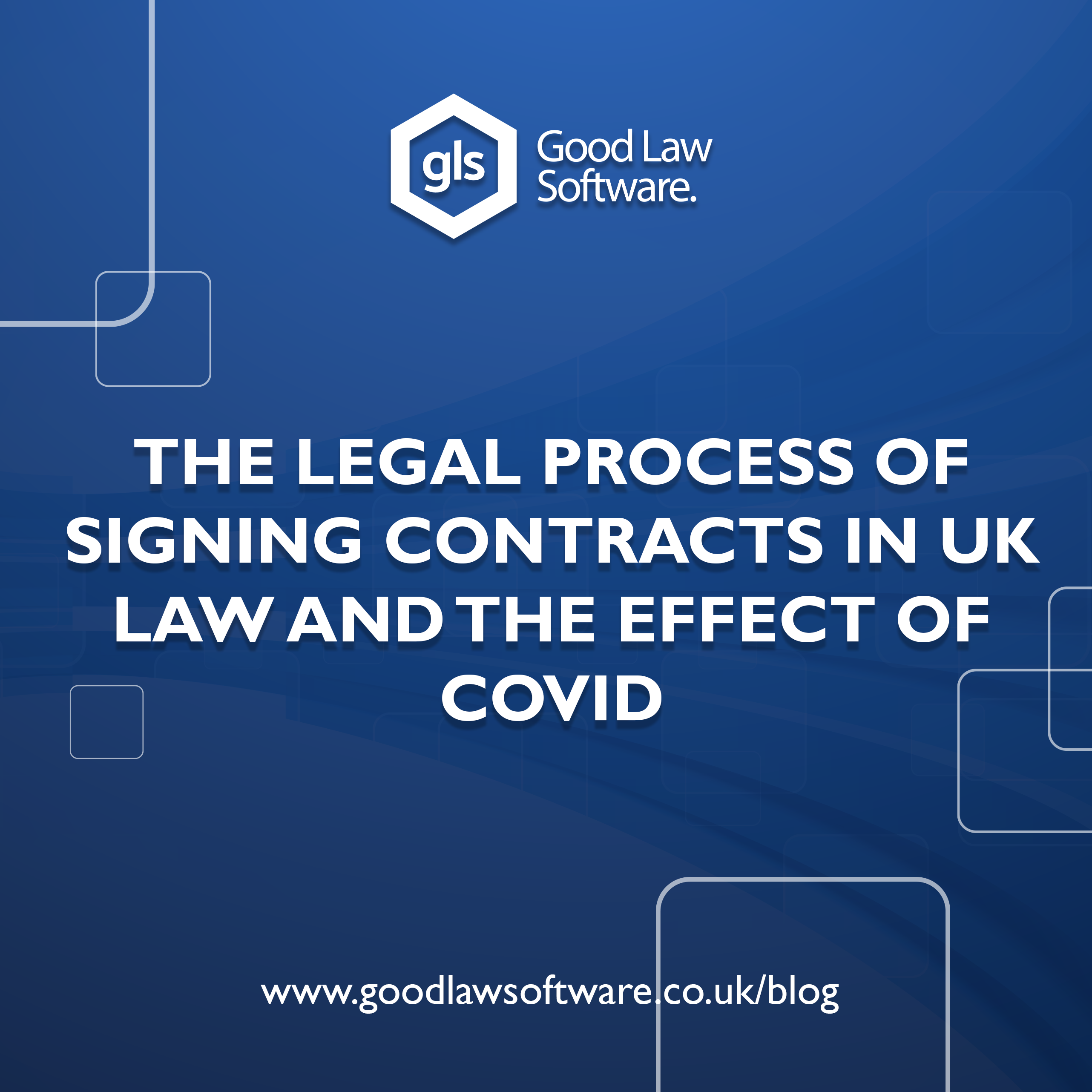The Legal Process of Signing Contracts in UK Law and the Effect of Covid

Written by Maryam Khan
Blogger

There is a set of rules, which is written legislation, and there is interpretation of the rules, which is known as case law.
People frequently imagine the law to be a long list of what they can and cannot do. This is partially correct, but the UK’s common law system allows judges to interpret legislation – to be pragmatic and approach the complexities of each case on its own merits. In the United Kingdom, judges have a centuries-old tradition of using common sense to interpret law rather than strictly adhering to what is written down, even if it contradicts common sense.
One of the most important steps in completing a transaction is contract execution. While oral contracts are enforceable, there are some situations in which the parties will prefer (and almost certainly need) to record their agreement in writing. Depending on the type of contract and the legal status of the parties, English and Scottish law imposes specific requirements on how the contract should be executed and who should sign it. [1]
In practice, this means that the law is open to interpretation for expat contractors, and that in a serious dispute, contractors should not attempt to apply the law themselves. As a result, effective legal advice from specialists is usually inexpensive.
Courts and Business Law
The parties to a contract, according to the courts, are the best judges of the commercial fairness of a proposed contract. Businesses are also the best judges of whether an agreement’s terms are reasonable – before committing to them.
In business law cases, courts do not readily accept that a company will enter into an agreement that it believes is unfair or contains unreasonable terms. What is not included in a contract is sometimes just as important as what is. Contracts, for example, may not include a termination clause that allows the contractor to cancel the contract before the end date – a good legal adviser will spot this and insist on including this clause. They are also likely to assist in the removal of unfavourable clauses.
Contracts can be entered into orally or in writing. Contracts are typically made in writing in order to provide a written record of the terms of the contract agreed upon by the parties. An oral contract can leave a lot of room for disagreement about its terms. [2]
Visual Contract Signings
To avoid these difficulties, a contract can be signed “virtually.” That is, the signature pages are prepared and executed ahead of time, and the signatures are “released” upon mutual agreement, which is frequently provided via email. [3]
In general, an offer and acceptance can be used to conclude a contract in English law. Strictly speaking, this does not require a signature, but parties to a commercial contract will usually sign these to demonstrate their agreement to its terms. In this case, any type of electronic signature will be legally sufficient to complete the contract. The general exception to this is when it comes to the execution of deeds.
The Mercury Case
The decision in the ‘Mercury Case’ resulted in a clarification of the position in English law regarding the use of contracts. Where signature pages are exchanged via email, pre-signed signature pages close. [4]
While the Mercury Case determined that adding a signature page to a deed or using a signature page from a previous draught of the deed in a final draught would be invalid, subsequent guidance issued by the Law Society provides a non-exhaustive list of options to facilitate signings or closings where signatories are located in different areas.
However, some contentious English case law suggests that, in some cases, contracts and deeds executed virtually may not be enforceable. The Law Society Company Law Committee and the City of London Law Society Company Law and Financial Law Committee have issued guidance to clarify the legal position. This advice should be kept in mind when planning closings or signings, especially if some parties need to sign documents virtually because they are unable to attend the meeting in person.
The Companies Act 2006
by the company itself, in writing under its common seal, or on its behalf by anyone with express or implied authority to do so
The actions of an agent who is expressly or implicitly authorised to contract on the company’s behalf are the most common way for a company to enter into a contract. This could be the director, but it is not always the case. The main requirement is that the person signing the contract on behalf of the company has the necessary authority. That person, however, is not required to hold any specific position or office within the company. [5]
Conclusion
References
[1] TEN THINGS: MAKING CONTRACTS EASIER
TO SIGN https://sterlingmiller2014.wordpress.com/2021/06/30/ten-things-making-contracts-easier-to-sign/
[2] The execution of documents – getting it right, https://www.taylorwessing.com/synapse/commercial_execution.html
[3] Signing documents during the COVID-19 pandemic, July 2020, https://www.ashtonslegal.co.uk/insights/business-news/signing-documents-during-the-covid-19-pandemic/
[4] Execution of documents by virtual means, Feb 2010, https://www.lawsociety.org.uk/en/topics/business-management/execution-of-documents-by-virtual-means
[5] UK contract law and signing contracts – what the expat contractor needs to know
https://www.contractorcalculator.co.uk/contract_law_signing_contracts_expat_contractor.aspx








